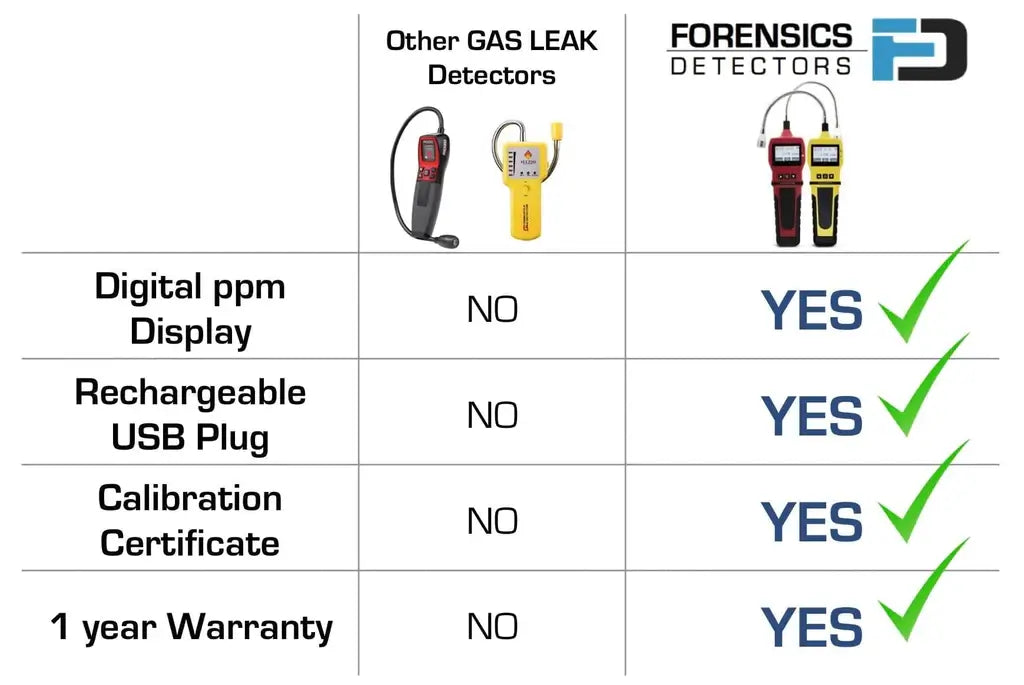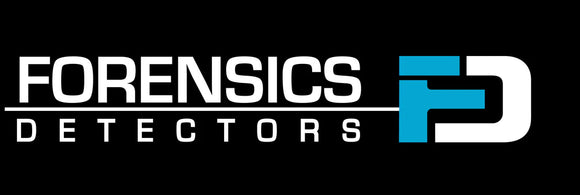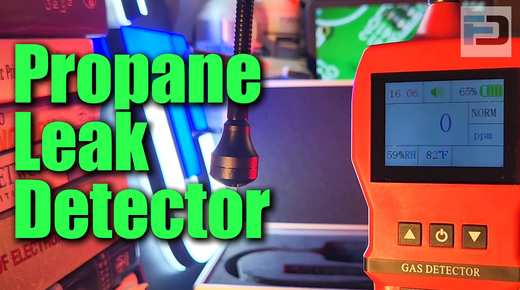Propane leak detectors provide critical gas monitoring for this widely-used yet combustible fuel source. Whether for home heating, cooking, RVs, or grills, these specialized instruments continuously sample ambient air to identify fugitive propane releases before hazardous buildup occurs. Propane inhalation risks and explosion dangers make early leak detection imperative. Residential and rural settings especially benefit from dedicated propane gas monitoring systems that trigger audible/visible alerts at the first sign of a propane leak. From personal safety to property protection, propane detectors are an essential safeguard wherever contained propane provides power or heat. Don't overlook this affordable insurance policy against accidental gas incidents.
Pros |
Cons |
|
✅ Most propane leak detectors are relatively inexpensive, at under $100. ✅ Propane gas leaks have the potential to cause explosions. The use of a propane leak detector can prevent such explosions and save lives. ✅ Many combustibles detectors that are capable of detecting the presence of propane gas are also able to detect other combustible gases such as natural gas. |
⛔ A Propane leak detector can last between 5 to 7 years. ⛔ Sometimes may be tricky to find small leaks. Need to trace the line slowly to allow enough detection time. ⛔ Carbon monoxide detectors are not designed to detect propane gas. Also, propane gas leak detectors do not detect carbon monoxide. |
What is a Propane Leak Detector?
A propane gas leak detector is a monitoring device used to detect a propane gas leak in a given environment. These detectors monitor a certain concentration of propane gas in the air. Typically, they are able to emit an audible alarm when there is a propane gas leak detected.
What is the Best Propane Gas Leak Detector?
- Forensics Detectors Propane Leak Detector
- Klein Tools Combustible Gas Leak Detector
- UEI Gas Leak Detector
- Ridgid Combustible Gas Leak Detector
- Inficon Gas Leak Detector
- Sensit Leak Detector
- Extech Gas Leak Combustible Detector
What is Propane Gas?
Propane gas is a nontoxic, odorless, colorless gas that is typically stored as a liquid. It is used for a number of applications including cooking, fuel, and heating. It is generally considered a "clean" gas in comparison to gasoline. Propane is the gas typically used at home for grills and outdoor heaters. They come in tanks or cylinders.

Is Propane Gas Combustible?
By definition, a combustible gas in one that ignites when exposed to and mixed with oxygen. Propane gas itself is flammable, thus meaning that it is a combustible gas.
Is Propane the Same as Natural Gas?
No.
Propane is not the same as natural gas. Natural gas is a fuel source composed of butane, methane, ethane, and propane. Propane is propane gas on its own with no additional gases mixed into it.
Natural gas is the gas fuel typically used in the home, when provided by the city. However, in many rural situations when natural gas line infrastructure does not exist, larger home propane tanks are used to supply the home with propane fuel for cooking, heating and hot water use.

Does a Propane Gas Leak Detector work for Natural Gas?
Yes it does.
Propane gas leak detectors are combustibles gas leak detectors, which means they are sensitive to combustible gases such as natural gas, which is mostly made up of methane gas.
Is Propane the Same as Methane Gas?
No.
Propane gas and methane gas are two different gases. They are both used for similar applications (fuel source) but are different hydrocarbons as shown from their chemical formulas - propane is C3H8 and methane is CH4.
Can a Propane Gas Leak Detector sniff LPG?
In most cases, yes.
LPG stands for liquified petroleum gas that may be propane, butane, or isobutane. Therefore, all propane is an LPG but not all instances of LPG is it propane.

Where Does Propane Come From?
The U.S. Department of Energy notes that propane is produced when natural gas is being processed and the liquid components are separated and recovered. It can also be produced during crude oil production.
Renewable propane, chemically identical to typical propane, comes from the production of biomass-based feedstocks.
Is Propane Gas Dangerous?
Propane gas is considered dangerous hence the reason we want to detect it if it is leaking. While it is nontoxic, it can displace oxygen in the body and in a confined space, making it difficult to breathe when exposed to large concentrations.
In addition, it has the capacity to produce large and life-threatening explosions.

What are Propane Gas Leak Symptoms?
Symptoms of propane gas inhalation are wide-ranging, especially depending on the severity of exposure. Such symptoms may include the following:
| Low Exposure |
|
| High Exposure |
|
Is A Propane Gas Leak Detector the same as a Combustible Gas Leak Detector?
Yes it is.
What Does a Propane Gas Leak Detector Do?
The primary goal of a propane gas leak detector is to sense a propane gas leak and notify users of the gas leak using gas leak detection. This typically takes the form of some sort of alarm or beeping. In some cases, an actual quantitative reading of the actual propane (combustible) concentration is displayed, typically a premium feature, but allow the user to get a better understanding of the concentration in an area that is contaminated by propane gas. The propane concentration is displayed in the ppm scale, which stands for parts per million.
How Expensive are Propane Gas Leak Detectors?
Propane detectors have a large range of cost, depending on the device. Many devices, including the Forensic Detectors' Gas Leak Detector, can be found for under $100, while others can get quite expensive and be close to $500.

How Long Do Propane Gas Leak Detectors Last?
Propane gas leak detectors can last roughly 5-7 years. As such, they are a worthwhile investment for the cost that most people will pay for them. For RV owners in particular, it is recommended to get on a schedule for replacement so that the detectors are not forgotten about and left in an unusable condition for too long.
Who Uses Propane Gas Leak Detectors?
Home Owners and Landlords
Homeowners and landlords who have propane appliances on their property may need a propane gas leak detector.
Campers and RVs Owners
Owners of RVs and campers use propane appliances and hence may need to use a Propane gas leak detector
Grilling and BBQ
Grill owners may need a propane gas leak detector to find leaks in their gas lines and connectors.
Plumbers, Technicians and HVAC
Trades people like plumbers, engineers, technicians, HVAC technicians also readily use propane and combustible gas leak detectors to find propane gas leaks.
Boating
Propane appliances are often used on boats for cooking and heating.
Ice Fishing, Camping and Recreation
Fishermen going ice fishing, campers and recreational folks also use propane for heating and cooking and may also use a gas leak detector to find any propane gas leaks.
How Do I Use a Propane Gas Leak Detector?
Most propane gas leak detectors have a gooseneck. At the end of the gooseneck the gas sensor it attached. Typically there is a warm up period. Once complete, the unit is ready to use. When the detector sniffs propane and others combustibles it alarms, beeps, or shows the ppm quantity. Take your time, be patient as small leaks are sometimes hard to detect. If moving the sensor to fast over a leak, it will not be detected.
Are Natural Gas and Propane Gas Leak Detectors the Same?
Natural gas and propane gas leak detectors are often synonymous with one another. Yet, some devices do have the chance to be specific to detecting propane only, so potential buyers should take care to make sure that the propane detector they are looking to purchase can, in fact, detect the gas they are most interested in monitoring.
Will a Propane Leak Set off a Carbon Monoxide Detector?
No.
Carbon monoxide detectors are not equipped to detect the presence of propane. Thus, a detector designed to monitor the explicit presence of propane is necessary to detect a potential leak.
Do I Need a Propane Gas Leak Detector?
Plumbers and HVAC professional carry them often. They are less likely to be found by the average homeowner, but more popular with RV owners.
Where Should a Propane Gas Leak Detector Be Located?
If the propane gas leak detector being set up is not a portable detector used to detect the exact location of a leak, it should be located just a few inches from the floor. These type of propane gas leak detectors are typically fixed location, and are plugged into wall power. This is because propane is a heavier gas and will rest closer to the ground. This is how permanent combustibles detectors should be set up.
Can a Carbon Monoxide Detector Detect Propane Gas Leak?
No, a carbon monoxide detector cannot detect a propane gas leak.
Carbon monoxide detectors are specifically designed to detect carbon monoxide (CO), a different gas than propane. Propane leaks emit methane and other hydrocarbons, which require a gas leak detector. These detectors are designed to sense flammable gases like propane, not carbon monoxide, due to their different chemical compositions and hazards.
FUN FACT - Propane Gas
Propane is odorless in its natural state, but an odorant is added to make it detectable. The most commonly used odorant is ethyl mercaptan, which has a strong, distinct smell similar to rotten eggs or sulfur. This addition is crucial for safety, as it allows people to easily detect propane leaks, which can be hazardous due to propane's flammability and potential to cause explosions.
Have There Been Any Propane Gas Leak Explosions?
Yes.
In fact, propane gas leak explosions are not terribly rare and many have been documented in recent years. Several examples from 2020 include the following:
- In the summer of 2020, a propane gas leak explosion leveled a home and tragically killed two individuals.
- In September of 2020, a propane gas leak explosion leveled a home.
- In early November of 2020, two propane gas leak explosions caused millions in damage and severely injured three individuals.
What Does a Propane Leak Smell Like?
Propane is typically described as having a strong, repugnant smell that many describe as reminiscent of either rotten eggs or skunk spray. Some of these scents are actually purposefully added to the propane to better permit people to sense a propane gas leak by scent and react accordingly. In fact, propane itself has an odor threshold of 1500 ppm.
However, scent alone is not always enough to detect a leak, emphasizing the benefit that propane gas leak detectors provide users.
Can You Smell A Propane Leak From RVs, Grills, Or BBQ Equipment?
Yes, propane leaks are detectable due to an added chemical called mercaptan, which creates a distinct "rotten egg" smell. This safety feature helps identify dangerous leaks immediately.
Final Words
Propane leak detection is critical for averting disaster from this volatile fuel source. Propane detectors, combustible gas monitors, or gas leak detectors continuously sample air to pinpoint fugitive releases before life-threatening accumulations occur. These vital instruments can locate a propane leak's origin, enabling prompt repairs to resolve the hazard. Without adequate monitoring, propane poses insidious risks of asphyxiation and catastrophic explosions. Stringent propane gas detection is an absolute necessity wherever propane heating, cooking, or power sources are used. From homes and RVs to commercial propane applications, dedicated leak detectors provide invaluable early-warning against this combustible gas's potentially lethal hazards. Implement comprehensive propane monitoring for uncompromised safety.
About the Author
Dr. Kos Galatsis ("Dr.Koz") is the President of FORENSICS DETECTORS, where the company operates from the scenic Palos Verdes Peninsula in Los Angeles, California. He is a subject matter expert on gas sensor technology, gas detectors, gas meters, and gas analyzers. He has been designing, building, manufacturing and testing toxic gas detection systems for over 20 years.

Every day is a blessing for Dr. Koz. He loves to help customers solve their unique problems. Dr. Koz also loves spending time with his wife and his three children going to the beach, grilling burgers, and enjoying the outdoors.
Read more about Forensics Detectors here.
Email: drkoz@forensicsdetectors.com
Phone: +1 424-341-3886

